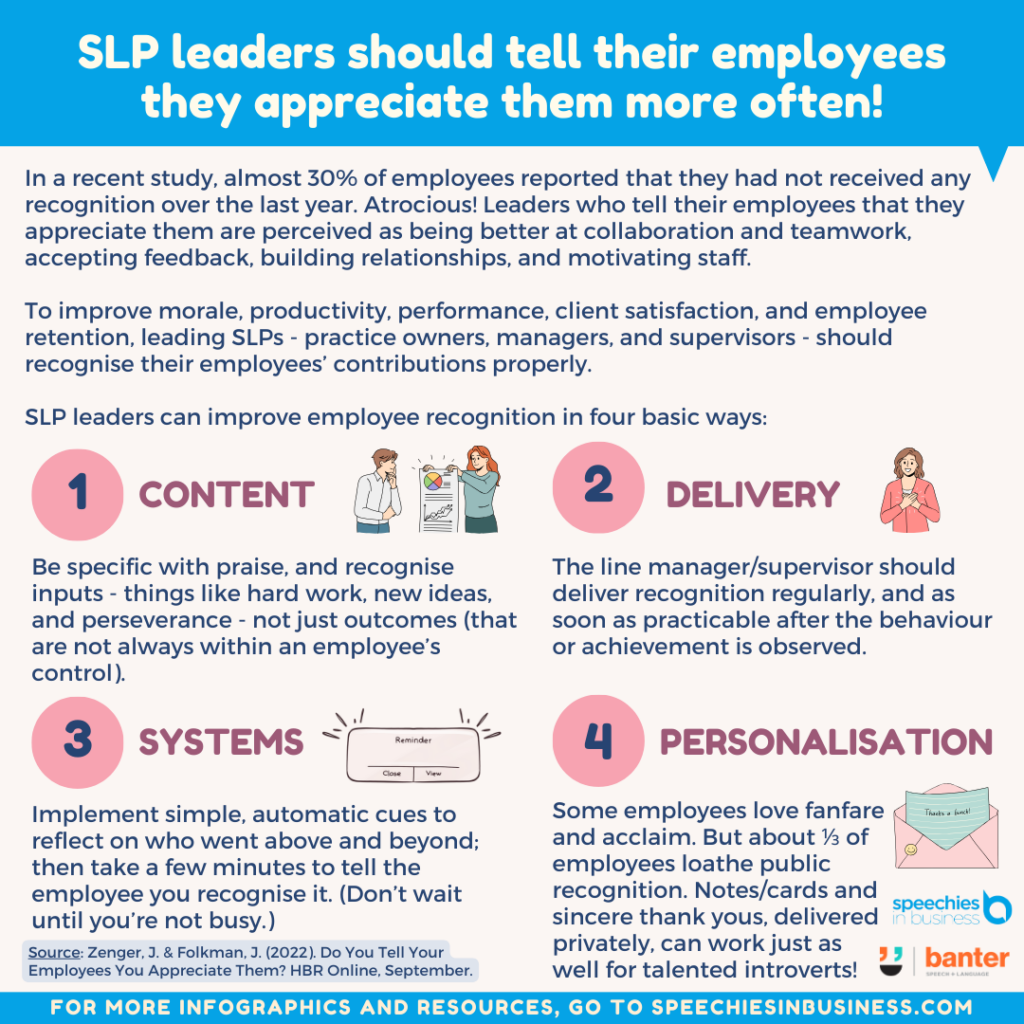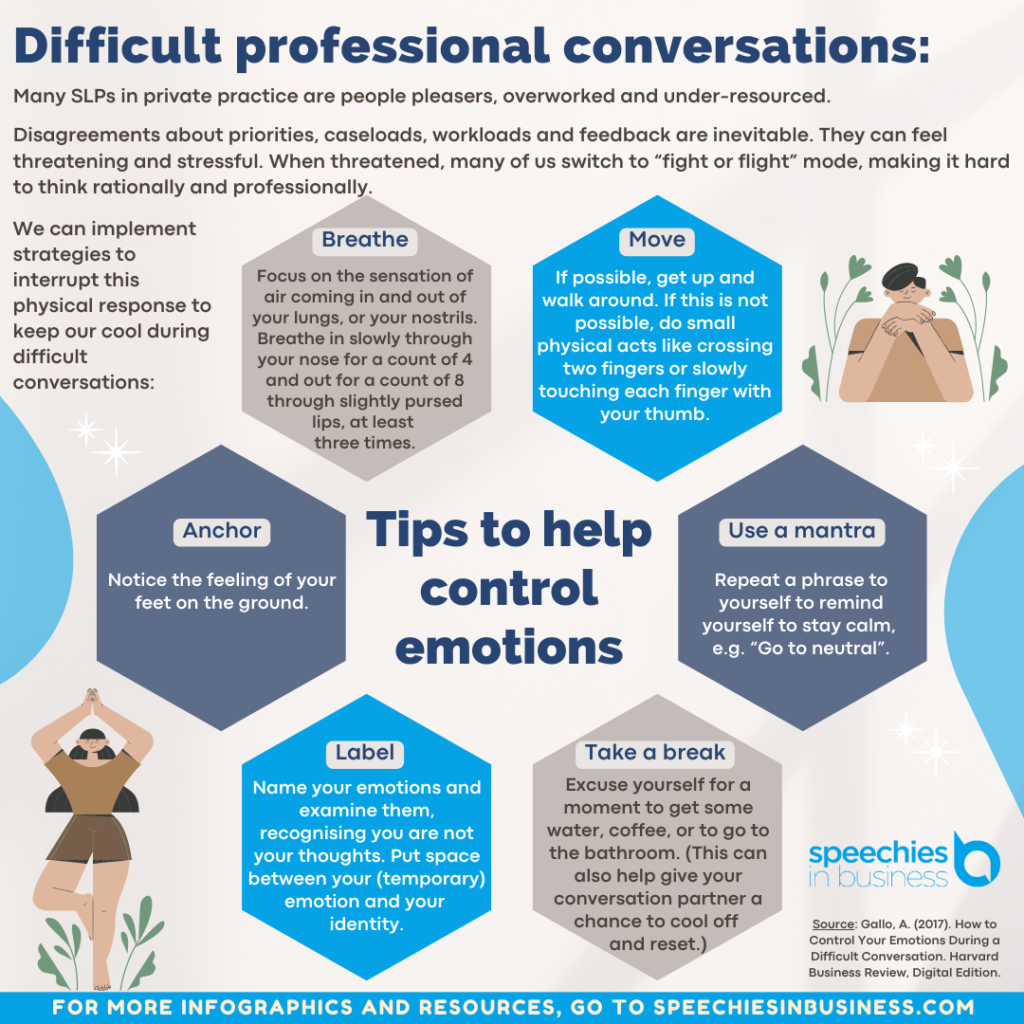Speech pathology mentors and supervisors commit time, attention and resources to develop other speech-language pathologists (SLPs).
Mentors and supervisors have the tricky job of simultaneously supporting SLPs while gatekeeping their competence on behalf of the profession and our clients.
Most mentors/supervisors are busy with case- and workloads, and family, community, and other commitments outside work.
Supervision and mentorship increase SLPs’ significant burnout risk. SLPs mentoring or supervising too many SLPs, SLPs from underrepresented groups, and SLPs who lack time, training, and resources to do the job are at even higher risk.
Mentoring and supervision can be rewarding: you can be a good mentor/supervisor and avoid burnout. But we need to be honest about the costs.
Exhausted, overwhelmed and disengaged SLPs make poor role models, mentors, and supervisors. Watch for early burnout signs: e.g. exhaustion, cynicism and inefficiency.
Mentees and supervisees are not responsible for mentor/supervisor burnout. The true culprits are underinvestment in systems and training, insufficient time and resources, and a lack of management and peer-support.
For the future of our workforce, mentors and supervisors must speak up about their bandwidth, boundaries and self-care needs, and demand sufficient time, training and resources to mentor and supervise SLPs properly.

Key source: Gotian, R., Pfund, C., Cook, C, & Johnson, W.B. (2022). Don’t Let Mentoring Burn You Out, Harvard Business Review, July, 2022.
For more on supervision of speech pathologists, check out our book “How to supervise speech pathologists properly in private practice“.




